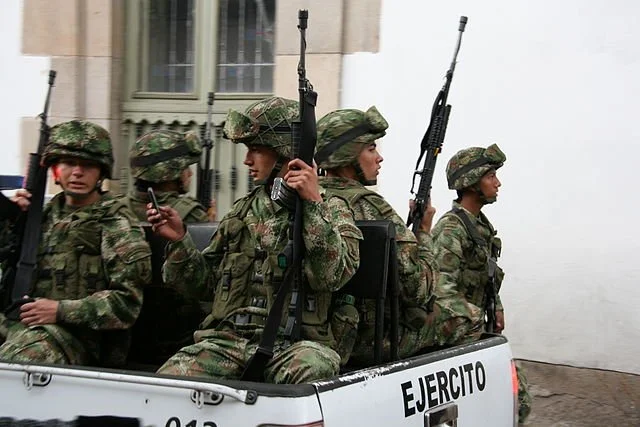Are We Going Up In Flames? What Will Make a Successful COP26
Hosting COP26 is huge for Glasgow: it brings 30,000 delegates from 196 countries to the UK, making it the largest conference that the country has ever hosted. But what should we, as visitors, residents, or citizens of the UK, hope to see coming out of the conference? Unlike past Conferences of the Parties, like Warsaw or Paris, this event likely won’t result in one treaty; rather, its aim points toward several Nationally Determined Contributions (NDCs) which are created to fulfill the promises outlined in the Paris Agreement.
COP26 has four main goals:
Reach net-zero emissions of greenhouse gases by 2050 and get the world on track to stay within the 1.5ºC limit set by the Paris Agreement.
Adapt our governments and practices to protect nature.
Gain climate financing from large corporations and wealthy countries.
Collaborate to:
Implement agreements outlined in the Paris Accord.
Bolster climate action in civil society, business, and the public sector.
But what will fulfilling those goals look like? What does a 'successful' COP26 entail?
For one, it is important to involve countries that are seemingly unconcerned with climate change. China, in particular, is the world’s largest greenhouse gas emitter, but is absent from many important climate conferences and agreements. China has already missed the extended deadline to submit an NDC, which is a government plan that outlines the country’s strategy to achieve climate goals established in the Paris Agreement. The UK and the United States both have invested time, effort, and money into engaging with China to get them involved in climate negotiations, but Chinese President Xi Jinping is still not attending the summit.
Second, developed nations and large corporations must cooperate. Financial support -- one of the four main objectives of the conference -- is key to realizing any goals. According to a tweet from COP26 President Alok Sharma, 'Mobilising finance and support for climate vulnerable countries is a key priority ahead of #COP26.' Financial goals have been difficult to realize at former climate change summits. At COP15 in Copenhagen, G7 nations made a promise of $100 billion per year to low-income countries, which has still yet to be fulfilled. Even so, many low-income countries argue that the $100 billion wouldn't even be enough. Global South countries assert that climate financing is essential for their 'ability and willingness to commit to ambitious climate targets, and therefore to broader ambitions of global net-zero.'
According to President Sharma, the Summit should aim to 'keep 1.5ºC alive', referring to the Paris Agreement goal of keeping warming under 1.5ºC. In practice, this means that countries need to pass legislation and make agreements that align with the global emissions goals set out in the Paris Agreement. Several leading economies have made net-zero pledges, which suggests that global net emissions could start to decline over the next decade, but many have yet to act on them. China, for example, has a plan to meet net-zero by 2060, but has yet to outline a plan of how it will do so.
Another goal of the conference is to start financing so-called 'loss and damage'; sending money to compensate climate-vulnerable countries for crop failures, drought, and rising sea levels. This concept was outlined in the Warsaw International Mechanism for Loss and Damage from COP19 in Warsaw, Poland and was reaffirmed in the Paris Agreement. Loss and damage is a key issue for low-income countries, but is not a main focus of richer countries such as the United States. For example, Cyclone Idai killed more than 1,000 people and destroyed more than 400,000 hectares of crops in Mozambique in 2019. Even after their international fundraising claims to loss and damage, Mozambique had only reached approximately 50% of their needed funds, requiring them to continue borrowing money from international institutions. This growing debt burden only continued the cycle, and prevented the country from being able to invest money in valuable and necessary adaptive climate infrastructure.
Lastly, as we browse social media, spectators should pay attention to what voices are being promoted at the conference. The Climate Action Network has expressed concern that the conference could become a 'rich nations stitch-up' because of the high costs of travel, hotels and quarantine for developing countries on the red list (BFPG), preventing them from attending and sharing their perspective. The UK has since promised to pay for the quarantine costs, but lack of vaccine access and sponsor participation can continue to be logistically exclusionary. Consequently, fewer voices from the Global South -- and therefore, fewer voices from the countries most affected -- will be heard. The former president of the Maldives, Mohamed Nasheed, says that about 80% of his country’s 1,190 islands are only a meter above sea level and 90% of those islands report flooding. At COP26, he insisted that other countries not compromise on 1.5C. Indigenous peoples are also urging COP26 to feature their voices, noting that they face some of the harshest consequences from the crisis despite being among the groups that contribute least. Prominently featured at the Global Day of Action Rally on November 6, they called their exclusion from the climate conversation 'modern colonialism.' To consider COP26 a success, we need to hear from those who are affected the most.
We have already seen some positive developments: promises to end and reverse deforestation, commitments to phase out coal power and coal financing, and an agreement to cut methane emission levels by 30% by 2030. But there is much to be hoped for from COP26. And, if successful, the conference can be a crucial step towards keeping our planet alive.
Image courtesy of @ndncollective via Instagram, ©2021, some rights reserved.



